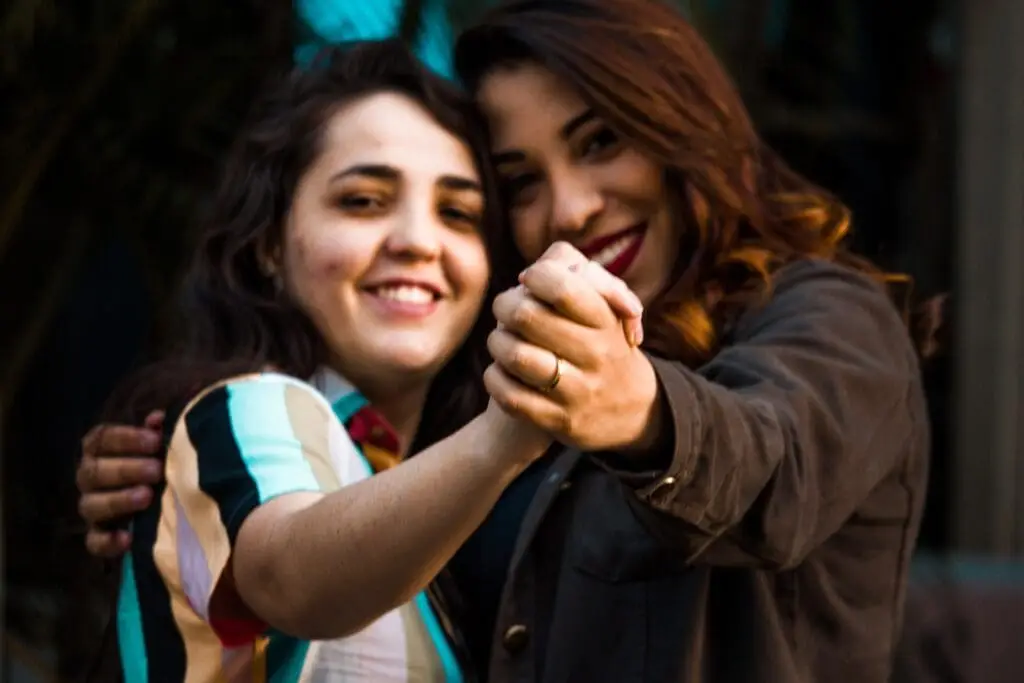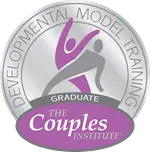Love knows no boundaries, and in today’s diverse world, the LGBTQ+ community continues to break barriers and redefine what it means to navigate romantic relationships. While love is a universal language, the unique challenges faced by LGBTQ+ individuals can often require additional support and guidance. That’s where LGBTQ+ relationship counseling steps in to provide a safe and inclusive space for couples to explore, grow, and thrive. In this fast-paced world, where societal norms are constantly evolving, it is crucial to prioritize mental and emotional well-being within relationships. LGBTQ+ relationship counseling offers a valuable opportunity for individuals and couples to address issues such as communication, self-acceptance, and societal pressures in a supportive and non-judgmental environment. By embracing the power of therapy, LGBTQ+ couples can strengthen their connection, overcome obstacles, and build a foundation of love and understanding that can withstand any storm. In this article, we will delve into the importance of LGBTQ+ relationship counseling and how it can positively impact the lives of those who seek it.
Understanding LGBTQ+ Relationships
LGBTQ+ relationships encompass a wide range of dynamics and orientations. From lesbian, gay, bisexual, transgender, and queer individuals, each relationship is unique and requires an understanding of the challenges faced by these couples. One of the key aspects of LGBTQ+ relationships is the societal context in which they exist. Homophobia, discrimination, and prejudice can significantly impact the well-being of individuals within these relationships.
Additionally, LGBTQ+ couples may face unique challenges related to family acceptance, legal rights, and societal norms. Understanding the intricacies of LGBTQ+ relationships is vital for relationship counselors to provide effective support and guidance to couples seeking assistance.
LGBTQ+ relationship counseling aims to create a safe space where couples can openly discuss their experiences, concerns, and goals. Through specialized training and a deep understanding of LGBTQ+ issues, relationship counselors can help couples navigate the complexities of their relationships and create a strong foundation based on love, respect, and understanding.
The Challenges Faced by LGBTQ+ Couples
LGBTQ+ couples face a range of challenges that can impact their relationship dynamics and overall well-being. These challenges often stem from societal attitudes and discrimination. Some of the common challenges faced by LGBTQ+ couples include:
1. **Prejudice and discrimination**: LGBTQ+ individuals often face discrimination and prejudice in various aspects of their lives, including their relationships. This can lead to feelings of isolation, shame, and fear, which can strain the relationship.
2. **Family acceptance**: Coming out to family members can be a difficult process for LGBTQ+ individuals. The lack of acceptance from family members or the fear of rejection can create tension within the relationship.
3. **Legal and societal barriers**: LGBTQ+ couples may face legal and societal barriers, such as limited legal rights, adoption challenges, or difficulties in accessing healthcare. These barriers can add stress and strain to the relationship.
4. **Internal struggles**: LGBTQ+ individuals may struggle with self-acceptance, internalized homophobia, or gender identity issues. These internal struggles can impact the relationship and require support and understanding from both partners.
Navigating these challenges can be overwhelming, which is why LGBTQ+ relationship counseling plays a crucial role in providing support, guidance, and strategies to overcome these obstacles.
The Importance of LGBTQ+ Relationship Counseling
LGBTQ+ relationship counseling is essential for the well-being and success of LGBTQ+ couples. It provides a safe and confidential space for couples to address their concerns, enhance their communication skills, and develop strategies to navigate the unique challenges they face. Here are some key reasons why LGBTQ+ relationship counseling is important:
1. **Validation and support**: LGBTQ+ relationship counseling provides validation and support to couples who may feel marginalized or misunderstood by society. It offers a space where couples can share their experiences without fear of judgment and receive guidance from a qualified professional who understands their unique needs.
2. **Improved communication**: Effective communication is vital in any relationship, and LGBTQ+ relationship counseling focuses on enhancing communication skills between partners. It provides a platform to address misunderstandings, improve conflict resolution strategies, and foster a deeper understanding of each other’s needs and desires.
3. **Navigating societal norms**: LGBTQ+ relationship counseling can help couples navigate societal norms and expectations that may impact their relationship. It provides tools and strategies to overcome external pressures, enhance self-acceptance, and build resilience in the face of discrimination or prejudice.
4. **Building a strong foundation**: LGBTQ+ relationship counseling helps couples build a strong foundation based on trust, respect, and understanding. It equips partners with the skills to navigate challenges, overcome obstacles, and foster a healthy and fulfilling relationship.
By seeking LGBTQ+ relationship counseling, couples are taking a proactive step towards nurturing their relationship and prioritizing their mental and emotional well-being.
Benefits of LGBTQ+ Marriage Counseling
LGBTQ+ relationship counseling offers a range of benefits that can positively impact the lives of couples seeking assistance. Here are some of the key benefits:
1. **Improved relationship satisfaction**: LGBTQ+ relationship counseling helps couples improve their relationship satisfaction by addressing underlying issues, enhancing communication, and fostering a deeper connection between partners.
2. **Enhanced communication skills**: Effective communication is vital in any relationship, and LGBTQ+ relationship counseling focuses on improving communication skills between partners. This includes active listening, expressing emotions, and understanding each other’s needs.
3. **Conflict resolution strategies**: LGBTQ+ relationship counseling provides couples with strategies to effectively resolve conflicts and disagreements. It helps partners understand each other’s perspectives, find common ground, and work towards mutually beneficial solutions.
4. **Increased self-awareness**: LGBTQ+ relationship counseling encourages self-reflection and self-awareness. It helps individuals understand their own needs, desires, and triggers, leading to personal growth and improved relationship dynamics.
5. **Support during challenging times**: LGBTQ+ relationship counseling offers support during challenging times, such as coming out to family members, dealing with discrimination, or navigating legal barriers. It provides a safe space for couples to process their emotions and receive guidance from a qualified professional.
What to Expect During LGBTQ+ Couples Therapy Sessions
LGBTQ+ relationship counseling sessions typically follow a similar structure to traditional relationship counseling sessions. Here’s what you can expect during LGBTQ+ relationship counseling:
1. **Initial assessment**: The first session will involve an initial assessment where the counselor will gather information about your relationship, background, and concerns. This is an opportunity for the counselor to understand your unique needs and goals.
2. **Setting goals**: Together with the counselor, you and your partner will set goals for the counseling process. These goals may include improving communication, addressing specific issues, or enhancing overall relationship satisfaction.
3. **Exploration and guidance**: LGBTQ+ relationship counseling sessions involve exploring the dynamics of your relationship, identifying areas for improvement, and receiving guidance and strategies from the counselor. The counselor will facilitate discussions, provide insights, and offer tools to enhance your relationship.
4. **Homework and practice**: In between counseling sessions, you may be assigned homework or exercises to practice the skills discussed during the sessions. These assignments are designed to reinforce learning and contribute to the growth of your relationship.
5. **Progress evaluation**: Throughout the counseling process, the counselor will evaluate your progress towards the goals you set. They will provide feedback, make adjustments if necessary, and ensure that you are on track towards achieving your desired outcomes.
LGBTQ+ Relationship Counseling Resources and Support Groups
In addition to individual counseling, there are various resources and support groups available for LGBTQ+ couples seeking additional guidance and support. These resources can provide a sense of community, validation, and additional tools to navigate the unique challenges faced by LGBTQ+ couples. Here are some LGBTQ+ relationship counseling resources and support groups to consider:
1. **Local LGBTQ+ organizations**: Many local LGBTQ+ organizations offer counseling services or can provide referrals to qualified LGBTQ+ relationship counselors in your area.
2. **Online support groups**: Online support groups, forums, and social media communities dedicated to LGBTQ+ relationship support can offer a sense of community and a platform to share experiences and seek advice from others who have faced similar challenges.
3. **National LGBTQ+ helplines**: National helplines dedicated to LGBTQ+ individuals often provide resources, support, and referrals to LGBTQ+ relationship counselors. These helplines can be a valuable source of information and assistance.
4. **Books and literature**: There are numerous books and literature available that focus on LGBTQ+ relationship dynamics, communication, and self-acceptance. These resources can provide additional insights and guidance for couples seeking to enhance their relationship.
Success Stories from LGBTQ+ Couples Who Have Benefited from Counseling
LGBTQ+ relationship counseling has transformed the lives of many couples, helping them overcome challenges, strengthen their connection, and build thriving relationships. Here are some success stories from LGBTQ+ couples who have benefitted from counseling:
1. **Sarah and Emma** struggled with communication issues and the impact of societal pressures on their relationship. Through LGBTQ+ relationship counseling, they learned effective communication strategies, gained a deeper understanding of each other’s needs, and built a strong foundation of trust and support.
2. **Alex and Jamie** faced family acceptance challenges, which created tension within their relationship. With the help of an LGBTQ+ relationship counselor, they navigated the difficult conversations with their families, established boundaries, and developed coping strategies to support each other during challenging times.
3. **Chris and Pat** sought LGBTQ+ relationship counseling to address their internal struggles with self-acceptance and self-worth. Through counseling, they learned to embrace their true selves, challenge societal expectations, and build a relationship based on authenticity and love.
These success stories highlight the transformative power of LGBTQ+ relationship counseling and the positive impact it can have on the lives of couples.
Overcoming Stigmas and Barriers to Seeking Counseling
Despite the numerous benefits of LGBTQ+ relationship counseling, there are still stigmas and barriers that prevent some individuals and couples from seeking help. These may include:
1. **Internalized stigma**: Internalized stigma and shame can prevent individuals from seeking counseling due to fear of judgment or rejection. It is important to remember that seeking help is a sign of strength and a commitment to personal growth.
2. **Lack of accessibility**: In some areas, LGBTQ+ relationship counseling may be limited or not easily accessible. This can be due to a lack of qualified counselors or limited resources within the community. In such cases, online counseling options may be explored.
3. **Financial constraints**: Financial constraints can be a barrier to seeking counseling services. However, many LGBTQ+ organizations and counseling centers offer sliding scale fees or financial assistance programs to make counseling more affordable.
4. **Fear of discrimination**: Some individuals may fear discrimination or lack of understanding from counselors who do not specialize in LGBTQ+ issues. It is important to research and find a counselor who is knowledgeable and experienced in working with LGBTQ+ individuals and couples.
Overcoming these stigmas and barriers requires a collective effort from society, including increased awareness, acceptance, and the availability of qualified LGBTQ+ relationship counselors.
Conclusion
Love does not discriminate, but the challenges faced by LGBTQ+ individuals and couples require additional support and guidance. LGBTQ+ relationship counseling offers a safe and inclusive space for couples to address communication issues, self-acceptance, and societal pressures. It provides validation, support, and strategies to help couples navigate the unique challenges they face. By embracing the power of therapy, LGBTQ+ couples can strengthen their connection, overcome obstacles, and build a foundation of love and understanding that can withstand any storm. Seeking LGBTQ+ relationship counseling is an investment in the well-being and success of the relationship, allowing couples to thrive in a world that continues to evolve.







